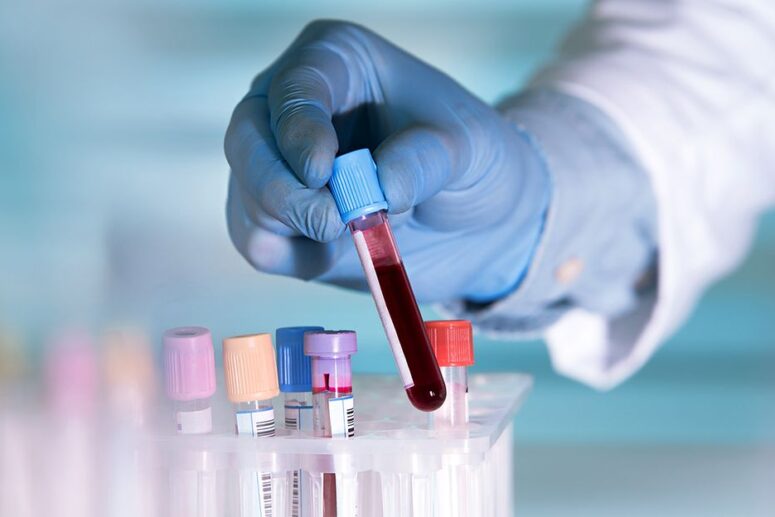Introduction: Cancer detection has entered a new era with the advent of Multi-Cancer Early Detection (MCED) tests. These revolutionary “liquid biopsy” tests analyze a blood sample to identify specific biological signals released by cancer cells. In this article, we’ll delve into the significance of MCED tests, their potential to detect multiple cancer types from a single blood sample, and the ongoing research supporting their development.
Decoding Multi-Cancer Early Detection (MCED) Tests: MCED tests represent a groundbreaking leap in cancer detection. Unlike traditional single-target cancer screenings, MCED tests aim to identify various cancer types using a single blood sample. By analyzing specific pieces of DNA or proteins from cancer cells in the blood, MCED tests offer the potential to not only diagnose cancer but also pinpoint the organ of origin. Some MCED tests focus on identifying the likelihood of cancer presence, necessitating further imaging tests to locate the source of abnormal DNA or proteins.
The Underlying Promise: Early Detection:
- Enhanced Survival Rates: Timely cancer detection is correlated with improved survival rates and more effective treatment outcomes.Reduced Invasiveness: MCED tests may reduce the need for invasive procedures like biopsies, minimizing patient discomfort and risk.Tailored Treatments: Early diagnosis via MCED enables personalized treatment strategies based on individual cancer profiles.
Why Pursue MCED Tests? The majority of cancer-related deaths stem from cancers lacking proven early detection methods. MCED tests aim to address this gap by potentially identifying a wide range of cancers before symptoms manifest.
MCED Tests’ Regulatory Status and Current Use: MCED tests are not yet FDA approved, but some operate under Clinical Laboratory Improvement Act (CLIA) regulations as lab-developed tests, allowing their use based on medical orders. Ongoing data collection by test developers aims for eventual FDA approval.
Supplementing Existing Screening Methods: MCED tests are positioned to complement rather than replace current screening tests like mammograms, Pap tests, colonoscopies, and PSA blood tests. They may extend the spectrum of detectable cancers, especially those without established screening protocols.
Unanswered Questions and Ongoing Research: Several crucial questions surround MCED tests:
- Detection Accuracy: The accuracy of MCED tests for various cancers and their subtypes remains a subject of ongoing investigation.Time Gains in Early Detection: MCED tests must identify cancers significantly earlier than symptom onset to positively impact treatment outcomes.Impact on Outcomes: Research must confirm whether earlier detection via MCED translates to improved patient outcomes and reduced cancer-related mortality.False Positives and Negatives: Addressing the prevalence of false-positive and false-negative results remains essential for patient well-being.Target Population and Frequency: Determining who should undergo MCED tests and the optimal testing intervals requires careful consideration.
American Cancer Society’s Role: The American Cancer Society (ACS) plays a pivotal role in advancing MCED science:
- Research: ACS funds research and collaborates with MCED test developers to provide insights and assess test accuracy within population studies.Advocacy: Once an MCED test proves effective and gains FDA approval, ACS advocates for equitable access to this test for recommended individuals.
The GRAIL Galleri Test in Focus: The GRAIL Galleri test, currently not FDA approved but available under CLIA waivers, exemplifies the MCED landscape. This central laboratory test is prescribed by doctors, with costs often borne by patients. Ongoing large-scale clinical trials aim to address uncertainties surrounding its accuracy and capabilities.
Conclusion: Multi-Cancer Early Detection (MCED) tests hold the potential to transform cancer diagnosis and management. While not yet FDA approved, these tests signify a promising advancement in detecting a spectrum of cancers at early stages. With ongoing research and collaborations, MCED tests could bridge the gap in early detection for numerous cancers, ultimately saving lives and altering the trajectory of cancer care.
Disclaimer: The information in this article is based on the American Cancer Society’s medical and editorial content team’s insights as of September 2021. Subsequent developments may have occurred. For the latest updates, refer to reputable sources and ongoing research.
About: Sunrise Group of Companies, encompassing Sunrise Clinical Labs, Sunrise Diagnostic Laboratory, Sunrise Care, Sunrise Clinical Services, and the Sunrise Second Chance Foundation, showcases a commitment to comprehensive care and support. Notably, Sunrise Clinical Services stands as a beacon of hope for Substance Use Disorder, while the Sunrise Clinical and Diagnostic Laboratories serve as reference labs specializing in infectious diseases and toxicology screening, offering confirmatory testing.

